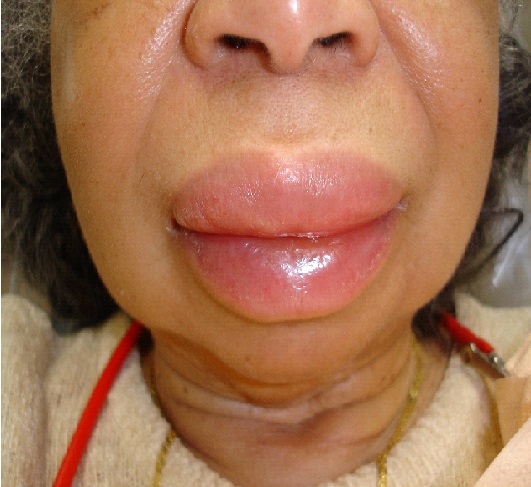Angioedema Symptoms, Causes, Diagnosis and Treatment

What Is Angioedema ?
Angioedema is the similar form of swelling like the one with hives (urticaria). However, it is known to affects the deeper skin layers, usually, encompassing the lips and eyes. Usually, the skin condition is safe, plus, fades without leaving any permanent marks. Rarely, treatment is needed. Though, intense form of angioedema can lead to serious complications in case the swelling of tongue or throat manages to block the airway. In case of treatment, doctor often suggests antihistamine medications.
What Are The Symptoms Of Angioedema ?
Symptoms of angioedema are:
It is the body’s response against the specific allergen and is more or less similar to urticaria. Angioedema is known to affect the skin’s deeper layer and mostly appears on the skin area that encompasses the lips, cheeks and eyes. Urticaria and angioedema can occur simultaneously, or one at a time. Symptoms are:
- Large welts.
- Welts can be thick and firm.
- Redness and swelling.
- Pain in the affected area.
- Burning sensation.
When Is The Right Time To Seek Medical Assistance ?
Mild cases of angioedema can be self-treated. In case the symptoms tend to persist for several days, call up for an appointment with your doctor. Do not delay to seek medical attention in case you throat swells and you feel breathing difficulties.
What Causes Angioedema ?
Angioedema can be sourced by the following factors:
- Foods: several foods are known to cause reaction in individuals with sensitivities. Few examples include milk, eggs, peanuts, fish etc.
- Medications: It is observed that any medication can instigate the skin condition, though aspirin, penincilin and naproxen are the common triggers.
- Certain substances: the skin condition is commonly caused by insect stings, latex, pollen etc, in persons with sensitivities.
- Environmental factors: such as sunlight, cold, heat, pressure of water on your skin etc.
- Causal health condition: At times, it occurs due to immune system disorders, certain forms of cancer, thyroid conditions and blood transfusions.
- Exercise and stress: The two factors are also known to cause angioedema.
- Infections: Infections that are triggered by viruses or bacteria may also root angioedema.
- Genetics: rarely, angioedema is inherited.
What Are The Complications Of Angioedema ?
As mentioned earlier, intense form of angioedema can turn serious, in case swelling of tongue or throat manages to block the airway. For such a case, treatment should be pursued right away.
How Is Angioedema Diagnosis ?
The doctor will perform a thorough physical examination and will ask questions to determine the possible triggers of the skin condition. Rarely, doctors suggest allergy skin test. Blood tests can be conducted in case the doctor doubts of hereditary angioedema.
How Is Angioedema Treatment ?
For mild signs of angioedema, treatment is not necessary as it usually clears up without the need of medical aid. Though, for continuous signs, great discomfort and extreme itching, treatment tends to offer ease. Treatment options include medication:
- Antihistamines,
- Corticosteroids,
- Autoimmune drugs and
- Blood protein controllers.
Serious attack of angioedema needs immediate trip to the hospital.
By : Natural Health News




